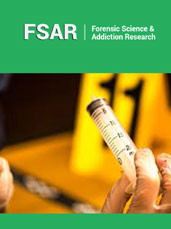A Subjective Appraisal of Aseptic and Sterilizing Practices in General Dentistry by Louis Touyz ZG* in Forensic Science & Addiction Research_ International Journal of Forensic Sciences

Abstract
Few current 2019, general dental practitioners recall those days when antisepsis was relatively primitive compared to today. There was a time up to the mid twentieth century 1900 to 1960. When soap and hot water were considered adequate for asepsis (reducing viable organic organisms to the level of no transmission of infection). Washing hands and scrubbing finger-nails under running tepid tap-water with an antiseptic phenol-laced soap and sing “Happy birthday to oneself twice, was considered adequate to ensure manual cleanliness no transfer of microbes. Most general dental practitioners and oral health care workers like Oral Hygienists, dental assistants and nurses, all practiced with un-gloved hands. Many did not wear face masks. Eye protection was with ordinary spectacles. Exodontics and minor oral surgical procedures were done with naked hands and the likelihood of receiving or transferring any infection was considered negligible. Some endodontists claim they could digitally feel when endo-reamers reached the apex. Alginate impressions were kept moist with gauze soaked in tap-water and transported thus to technicians, with no regards to possibilities of infection. Boiling water “Sterilizers” were kept boiling all day to ‘sterilize hand instruments.”
Each
time one opened the lid covering the boiling cauldron, your spectacles would
steam up. Dry heat sterilization was kept for special endodontic instruments
(at 120 °C overnight), and most heat labile supports like rubber tubing and
bowls, plastic instruments, mixing spatulas, were simply wiped down with
surgical ethanol (90%V/V). The entire operatory could be wiped down with
ethanol or some other antiseptic liquid. In the mid 1950’s the contraceptive
pill for females was introduced and then globally in the 1960’s much libidinous
behaviour followed. In the 1970’s the scourge of HIV started to manifest when
many young homosexual men between 18 and 28 were dying from AIDS. Being infected with HIV,
was considered a death sentence as most HIV infected patients succumbed
to AIDS with a decade of the initial infection. HIV infection from any and all
sources was deemed possible, and a patient (Kimberly Bergalis) accused and her
gay Dentist (Dr. Acer) of infecting her with HIV. History proved this
accusation to be spurious if not false, but the publicity generated in the
seventies from this case shocked the entire dental profession world-wide into
adopting more stringent disinfection practices
https://crimsonpublishers.com/fsar/fulltext/FSAR.000598.php
For
more articles in International Journal
of Forensic Sciences,
Please
click on below link: https://crimsonpublishers.com/fsar/



No comments:
Post a Comment